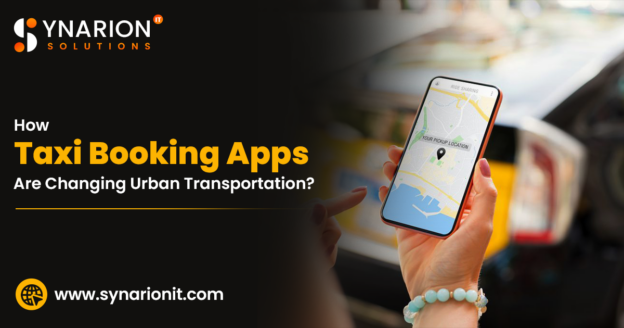The world of urban transportation has undergone a massive transformation over the last decade, and at the forefront of this change are taxi booking apps. These innovative platforms have not only revolutionized how we move around cities but have also created entirely new business models and ecosystems within the transportation industry. With the rise of ride-sharing apps like Uber, Lyft, and others, the shift from traditional taxis to app-based bookings has become undeniable. Taxi booking app development has paved the way for faster, more efficient, and more convenient ways to get from one place to another, making urban commuting smoother and more accessible for people around the globe.
1. On-Demand Accessibility
One of the most significant changes that taxi-booking apps have brought to urban transportation is the ability to book a ride on demand. Gone are the days of waiting on the street corner for a taxi to pass by or calling a dispatcher, hoping a cab is available. With just a few taps on your phone, you can instantly request a ride, and within minutes, a car will arrive at your location. This on-demand nature of taxi booking apps has dramatically improved the efficiency of urban transport systems.
2. Improved Convenience and Comfort
Taxi booking apps offer a level of convenience that traditional taxi services simply cannot match. Riders can track their ride in real-time, estimate fare charges upfront, and even choose the type of vehicle they prefer, whether it’s a sedan, SUV, or luxury car. Additionally, payment is simplified with cashless transactions, making the entire experience more seamless.
3. Cost-Effective Transportation
With the rise of ride-sharing options through taxi booking apps, transportation costs have become more competitive. Unlike traditional taxis, where pricing could be inconsistent or vary depending on the taxi company, taxi booking apps often feature transparent pricing models. Users can see the fare estimate upfront, and options like ride-sharing (where multiple passengers can split the cost) help reduce individual costs.
Apps like Careem and their clones allow users to choose between different ride options based on their budget. For instance, Careem clone app development enables businesses to offer a range of vehicle choices, from budget-friendly rides to premium vehicles, all at competitive prices.
4. Better Safety and Security Features
In the past, one of the challenges with traditional taxi services was the lack of transparency regarding driver identification, vehicle condition, and safety measures. With the introduction of taxi booking apps, there has been a significant improvement in these areas.
5. Real-Time Tracking and Route Optimization
Taxi booking apps use GPS technology to provide real-time tracking of rides, making it easier for both passengers and drivers to monitor the journey. This is especially useful in urban areas where traffic conditions can vary greatly.
For passengers, this feature provides a sense of security as they can always track the location of their ride. For drivers, route optimization algorithms ensure that they are taking the most efficient path to avoid delays due to traffic or road closures.
6. Reducing Traffic Congestion and Pollution
Urban areas are often plagued by traffic congestion, which results in longer commute times, increased pollution, and greater fuel consumption. Taxi booking apps have the potential to help alleviate some of these issues by promoting carpooling and ride-sharing options.
By allowing passengers to share rides with others going in the same direction, taxi apps reduce the number of cars on the road, which can help alleviate congestion. Moreover, more efficient route planning helps reduce fuel consumption and the emission of harmful pollutants into the environment.
7. Opportunities for Entrepreneurs and New Market Entries
For entrepreneurs looking to enter the rapidly growing transportation sector, Careem clone app development offers a fantastic opportunity. By leveraging an existing, proven model and customizing it to suit local needs, startups can quickly launch their ride-hailing services without starting from scratch.
Conclusion
Taxi booking apps have fundamentally changed urban transportation, offering a more convenient, efficient, and cost-effective way to travel. These apps have not only improved the user experience but have also created new business opportunities and environmental benefits, reshaping how cities handle their transportation needs.
Through innovations in taxi booking app development and solutions like Careem clone app development, the future of urban mobility is becoming more flexible and interconnected. Whether you are a rider seeking convenience, a driver looking for flexible work opportunities, or an entrepreneur aiming to tap into the growing market, taxi booking apps are revolutionizing urban transportation and offering numerous possibilities for improvement and growth.








